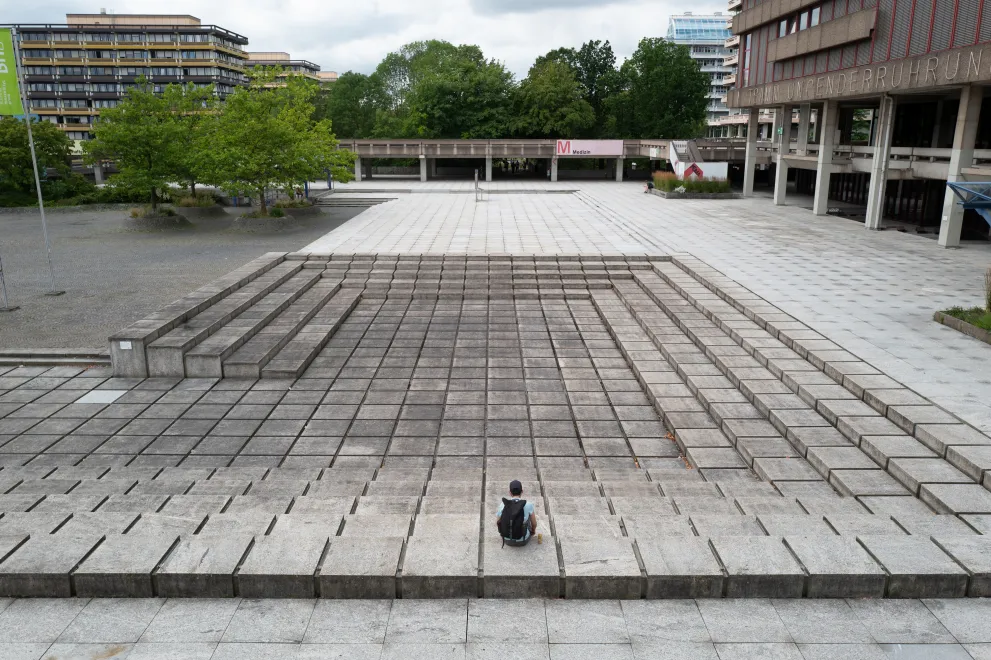In addition to the Ruhr University Bochum as coordinator (Maike Luhmann), the project involves the Vrije Universiteit Amsterdam (Netherlands, Judith Merkies), the Annecy Behavioral Science Lab (France, Hans Ijzerman), the Universita Cattolica del Sacro Cuore (Italy, Patrizia Catellani), the SWPS University (Poland, Katarzyna Growiec), the University of Milan (Italy, Cristiano Vezzoni) and Rob Blaauboer's communications company FIOTI.

EU project
LONELY-EU
The project team wants to better understand loneliness in Europe and develop recommendations for effective measures against loneliness.
Loneliness affects many, and it harms both individuals and societies. The project "The Social Isolation and Loneliness in Europe Network: Evidence-Based Policy Recommendations on its Causes, Consequences, and Monitoring", or LONELY-EU for short, aims to combat this: Coordinated by Prof. Dr. Maike Luhmann, a psychologist at Ruhr University Bochum, an international consortium is developing ways to share knowledge and bring together expertise. The aim is to encourage decision-makers to develop targeted and fact-based measures to prevent and reduce loneliness.
Understanding loneliness better
We know that 13% of EU citizens report in studies that they have felt lonely most of the time in the past four weeks. Loneliness and social isolation have significant negative effects on mental and physical health and even increase mortality. They are also harmful to societies because they reduce trust in institutions, social participation and people's productivity.
Recommend helpful measures
Based on the data analysis, the project participants therefore want to develop proposals for monitoring loneliness and a recommendation for its Europe-wide implementation. Ultimately, the project should result in a network that functions as a dynamic platform for exchange and cooperation. The aim is to make recommendations for policymakers on suitable measures to prevent or reduce loneliness.
